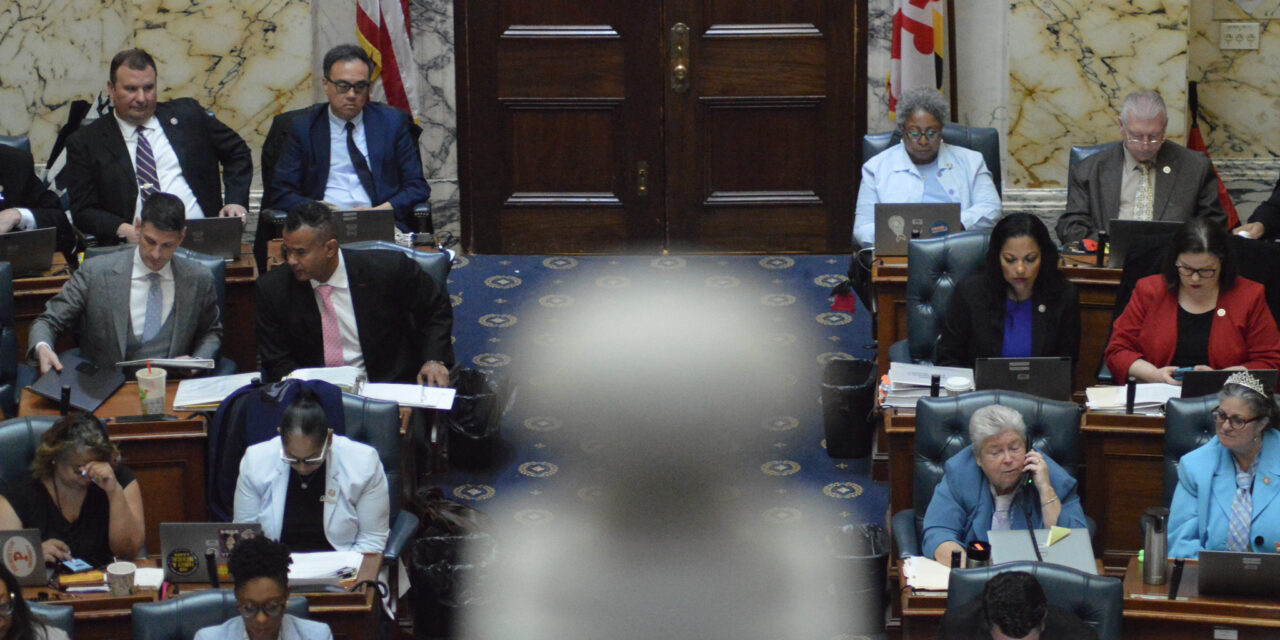By SASHA ALLEN
ANNAPOLIS — Maryland mental health advocates and providers are relieved coming out of this year’s legislative session, where state lawmakers decided against a drastic cut in funding to the state’s year-old, big-money program aimed at improving the mental health of its young people.
The Consortium on Coordinated Community Supports, created under the state’s ambitious and expensive education reform plan called the Blueprint for Maryland’s Future, will receive $70 million from the state’s fiscal year 2026 budget to award mental health providers in its second round of grants. That’s up from the $40 million Gov. Wes Moore originally suggested spending.
But with some money left over from funding this past fiscal year, the consortium plans to allocate closer to $98 million in grants. Legislators previously allocated $119.7 million over two years to set up the consortium and issued its first $111 million of grants in February 2024.
Partly as a result of those grants, more than 80% of Maryland public schools now have some sort of mental health service available for students. And mental health advocates said the additional funding means the state’s effort will continue to reach a large percentage of the state’s children.
“This is a critical investment that’s ensuring students in every corner of our state have the resources and support necessary to learn and thrive,” said Dan Martin, senior director of public policy at the Mental Health Association of Maryland. “We couldn’t be happier.”
The consortium provides mental health funding for dozens of services, including in-school counseling, substance abuse treatment and peer support groups for families and students.
But at the beginning of this year’s difficult legislative session where the General Assembly would have to fill a $3 billion budget hole, Moore proposed a spending plan that allocated only $40 million to the youth mental health effort — even though he once proposed the program should receive $130 million for fiscal year 2026.
The General Assembly, however, passed a bill on the last day of the legislative session that added $30 million to the youth mental health budget on top of what Moore had proposed, leaving many relieved for the future of the program.
Sen. Katie Fry Hester, a Democrat representing Montgomery and Howard counties, said this decision was crucial for the future of the consortium and the youth mental health programs it funds.
“When you’re trying to address the mental health needs of the entire state, you can’t really do it piecemeal,” Hester said.
If funding for the consortium had been limited to the amount suggested in Moore’s budget, “you would have to redo the entire program,” Hester added.
The consortium’s grant allocations are designed around a “hub and spoke” model that aims to include community organizations in the program. The hubs, or organizations already established in Maryland’s counties, including churches and community centers, help promote and run the services of the spokes, or mental health programs. Both are funded through consortium grants.
“The hub and spoke model would not have worked at $40 million,” Hester said.
While the community organizations are in different stages of operation in each county, Mark Luckner, executive director of the Maryland Community Health Resources Commission, said the funding provided will allow for the program to move closer to full implementation this upcoming year.
Luckner said a good number of active service providers have applied for the second round of funding, which the consortium is expected to issue by June 30.
The initial 127 grants were projected to serve about 150,000 people, “and they’re well on their way to do that globally,” Luckner said at Thursday’s consortium meeting.
Luckner said he believes within two years, as many as 22 of the state’s 24 jurisdictions will either have a fully operational or almost fully operational youth mental health hub.
“We should just take a moment and celebrate that accomplishment that the consortium is achieving,” Luckner said.
Service providers agree. Jan Guszynski is the project manager for Prosper, an app that, under Uneo Health, provides mental health check-ins for adolescents. The app received $1.4 million in grants to provide services in Prince George’s, Frederick and Calvert counties.
Before the legislation was passed confirming $70 million in consortium funding for fiscal year 2026, Guszynski said she was worried for the future of not only mental health services but for the students using them.
“I really, really hope that we do not see these resources shuttered or too heavily impacted as time goes on,” Guszynski said. “Because it’s hugely important.”
Those resources won’t likely get shuttered or too heavily impacted if the General Assembly sticks with the outline it set in the budget it just passed, which projects $100 million in youth mental health funding in the fiscal year 2027 and $100 million annually after that.



Recent Comments